Take note of the title, with its “could”, not “must”. “The word ‘must’ is not to be used to Princes,” quoth Good Queen Bess as echoed in Britten’s Gloriana. Yet that was the verb used by New York writer Scott Rose, guest-posting on Norman Lebrecht’s Slipped Disc blog. He declared that hit-and-miss superstar soprano Anna Netrebko, having proved fair game for the drive against Putin’s Nazi-rulebook laws in Russia by aligning herself politically with the regime as a named supporter of his re-election campaign, “must state her position on gay rights in Russia”.
The momentum has gathered over in America as the Metropolitan Opera prepares for its gala opening of the 2013-14 season. Its choice, made and cast of course long before the recent kerfuffle, is Eugene Onegin by Tchaikovsky, whose well chronicled and highly active sex life you could now be "legally" imprisoned for mentioning to teenagers in Russia. The conductor is to be an even more explicit Putin supporter, Valery Gergiev, and Netrebko sings the role of the lovelorn teenage Tatyana. Fiona Shaw takes over directing one-time partner and good friend Deborah Warner’s production, uncharacteristically under-nuanced when it was first seen at English National Opera. So that makes two more who might have something to say on the matter, as might the Onegin, Polish "barihunk" Marius Kwiecien.
A petition launched by 75 year old composer (Charles) Andrew Rudin was less prescriptive than Rose’s imperative. Its title quickly clarifies: "The Metropolitan Opera: Dedicate 9/23 Opening Gala to support of LGTB [don't we usually say LGBT?] people". Clever: the artists could back it without explicitly repudiating one of their chief paymasters (Gergiev is already one of the world’s richest people, but without Putin’s support, he would never have had a concert hall and a second theatre built alongside his Mariinsky Theatre in St Petersburg).
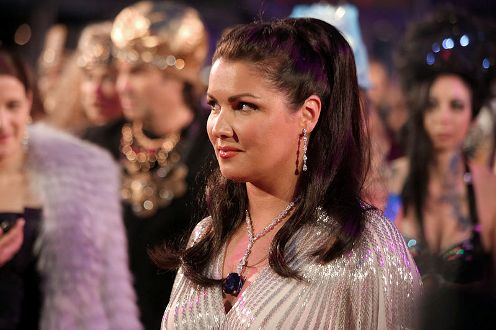 Finally, after much equivocating, the influential opera house’s answer arrived: “As an institution, the Met deplores the suppression of equal rights here or abroad. But since our mission is artistic, it is not appropriate for our performances to be used by us for political purposes, no matter how noble or right the cause.” Netrebko (pictured right at Vienna's Life Ball earlier this year) went as far as she's prepared to in declaring on her Facebook page: “As an artist, it is my great joy to collaborate with all of my wonderful colleagues - regardless of their race, ethnicity, religion, gender, or sexual orientation. I have never and I will never discriminate against anyone.” All’s well, then, within the wonderful world of opera.
Finally, after much equivocating, the influential opera house’s answer arrived: “As an institution, the Met deplores the suppression of equal rights here or abroad. But since our mission is artistic, it is not appropriate for our performances to be used by us for political purposes, no matter how noble or right the cause.” Netrebko (pictured right at Vienna's Life Ball earlier this year) went as far as she's prepared to in declaring on her Facebook page: “As an artist, it is my great joy to collaborate with all of my wonderful colleagues - regardless of their race, ethnicity, religion, gender, or sexual orientation. I have never and I will never discriminate against anyone.” All’s well, then, within the wonderful world of opera.
Is there, though, “no aesthetics without ideology”, as one eloquent blogger insisted? Should, on the other hand, art and politics never mix? Unfortunately, as with the fortunately excoriated Section 28 here, they certainly will in Russia when it comes to culture in the classrooms, which is why Tchaikovsky is such a good peg on which to hang this particular campaign. Paradoxically, he was freer to express his sexuality under the double standards of the Tsars – at least until the scandal which may, or may not, have ended his life (the composer pictured below in 1893) - than anyone now is in a country which, though never tolerant, has now had the clock turned back.
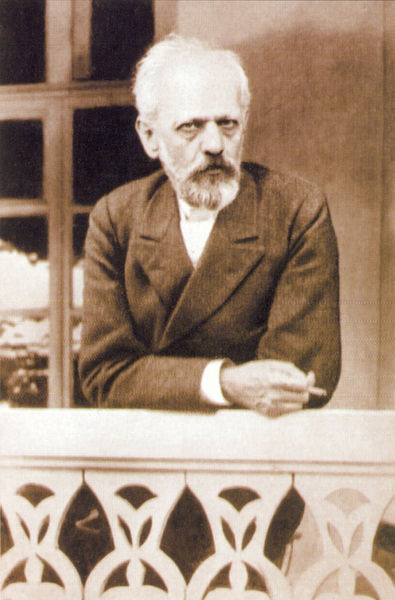 Yes, there are plenty of regimes around the world where the attitude to homosexuality is just as unenlightened, many of them in charge of commonwealth countries. But in the freewheeling Russia of the 1990s, gay clubs opened and things seemed to be moving forward despite the usual outbreaks of violence. The new laws now effectively sanction attacks on gays, many of them leading to murder; image after image assaults us on the internet with the evidence of police brutality on former Gay Pride marches. Those laws allow for the 14-day detention and expulsion of foreign nationals who can be deemed in any way to promote homosexuality (like the Canadian in Moscow’s Red Square who was arrested and interrogated for a maple leaf on his backpack which merged into the colours of the rainbow flag). They can take children away not only from gay couples but even couples in which one or other of the partners is even suspected of being gay (you see how Stalin’s culture of spiteful informing returns with a vengeance).
Yes, there are plenty of regimes around the world where the attitude to homosexuality is just as unenlightened, many of them in charge of commonwealth countries. But in the freewheeling Russia of the 1990s, gay clubs opened and things seemed to be moving forward despite the usual outbreaks of violence. The new laws now effectively sanction attacks on gays, many of them leading to murder; image after image assaults us on the internet with the evidence of police brutality on former Gay Pride marches. Those laws allow for the 14-day detention and expulsion of foreign nationals who can be deemed in any way to promote homosexuality (like the Canadian in Moscow’s Red Square who was arrested and interrogated for a maple leaf on his backpack which merged into the colours of the rainbow flag). They can take children away not only from gay couples but even couples in which one or other of the partners is even suspected of being gay (you see how Stalin’s culture of spiteful informing returns with a vengeance).
This ought to be the final straw for a west which has stood helplessly by as opponents of the regime have been arrested or assassinated. But in a society where 30 per cent of Muscovites thought that the acid-in-the-face attack on Sergey Filin ordered by a Bolshoi enemy was a legitimate punishment for a rival, Putin probably isn’t going to care too much for what the liberal outside world thinks. You could even understand the mindset of a man obsessed – and in some departments successful – with building a strong Russia. I abhorred, but could comprehend, Gergiev’s blatantly nationalistic support of Putin in the campaign against Georgia; he was Ossetian, so to play Shostakovich’s Leningrad Symphony as a symbol of “victory” over an invader must have seemed right to him, if atrocious to us.
All I understand now is the scapegoating of a minority by a party – the only party, in essence – losing some of its grip. It is, as Desmond Tutu courageously stated recently from the equally dark heart of Africa, every inch as bad as apartheid and condoning it, or standing by, can only make it just as powerful.
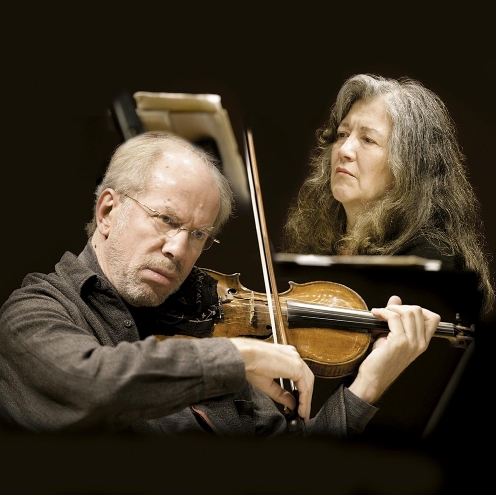 There are, of course, artists who have made, or will make, their protests. Lady Gaga has been instrumental; back in December 2012 she thanked Prime Minister Medvedev for declaring that the President's decree was unnecessary as "not all relations between people can be regulated by law” and adding that the party shared this opinion. If he could say so, why can't the politically implicated performers? Latvian-born violinist Gidon Kremer is enlisting the likes of Martha Argerich (Kremer and Argerich pictured right in a Berlin recital) and Daniel Barenboim for a concert in Berlin on 7 October, the anniversary of journalist Anna Politkovskaya’s murder, originally set down as a stance with Russia’s political prisoners.
There are, of course, artists who have made, or will make, their protests. Lady Gaga has been instrumental; back in December 2012 she thanked Prime Minister Medvedev for declaring that the President's decree was unnecessary as "not all relations between people can be regulated by law” and adding that the party shared this opinion. If he could say so, why can't the politically implicated performers? Latvian-born violinist Gidon Kremer is enlisting the likes of Martha Argerich (Kremer and Argerich pictured right in a Berlin recital) and Daniel Barenboim for a concert in Berlin on 7 October, the anniversary of journalist Anna Politkovskaya’s murder, originally set down as a stance with Russia’s political prisoners.
Kremer has been clear if thoughtful on Gergiev’s and Netrebko’s dual roles. “I don't want to point the finger, but it always upsets me to see talented colleagues more interested in self-promotion than in their art form becoming state delegates rather than artists. I'm highly suspicious of patriotism that identifies itself with the government. An artist, in my opinion, and historically, should be independent”.
Among the sadly too few artists adding their voices are Joyce DiDonato, great artist and - as it becomes clearer by the day - great human being Last but probably foremost, there has been Stephen Fry’s open letter last week to David Cameron and the International Olympic Committee asking unequivocally for withdrawal from the 2014 Winter Olympics in Sochi, a brilliant piece of indignant rhetoric backed up by chapter and verse. It seems to have had a huge effect, at least in the UK media. My writing this, and deciding that I won’t be going to any of Gergiev’s concerts until he says something, won’t make any such splash in the larger scheme of things; I only do these things to square my own conscience. But the famously gifted of the cultural world do have a voice, a chance to influence if not to change things to everyone's satisfaction. It’s not that they must, but if only they would, slow evolution might come to beleaguered Russia, a country I love and over which I deeply grieve.
UPDATE (6 September): the petition asking the Met to make a stronger statement has passed the 8,000 strong mark and should reach 10,000 by the time of the gala. Among the sadly too few artists adding their voices are soprano Patricia Racette, director Bartlett Sher and mezzo Joyce DiDonato, great artist and - as it becomes clearer by the day - great human being. She has made her own eloquent statement on her blog, dedicating her Last Night of the Proms performance of "Over the rainbow" tomorrow "to all of those brave, valorous gay and lesbian souls whose voices are currently being silenced – either by family, friends, or by their government"; read and applaud.








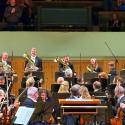
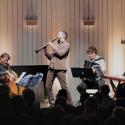


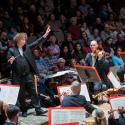
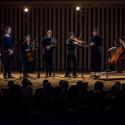
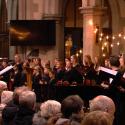
Add comment